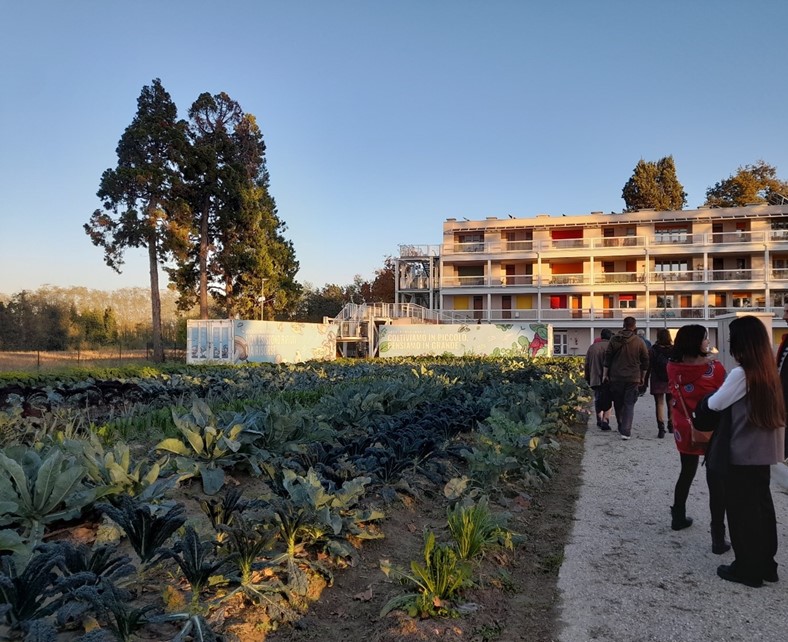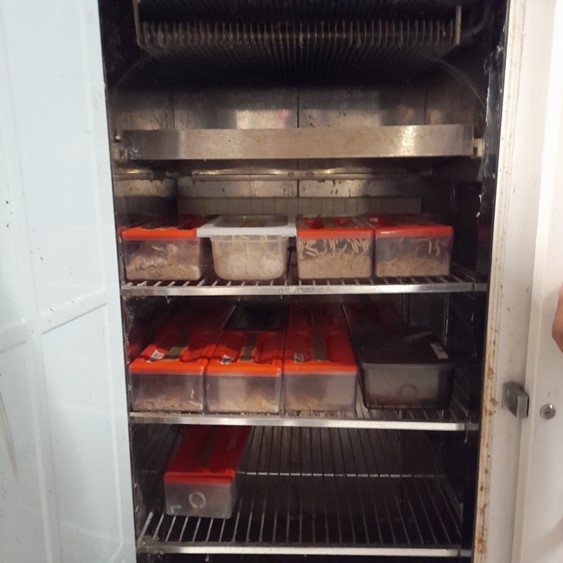The Department of Agricultural and Food Sciences and Technologies (DISTAL) of the University of Bologna (UNIBO) is working on the integration of a circular simplified hydroponics system for plant production. The hydroponics system maximizes water and energy use efficiency, and contributes to food and nutrtion security of migrants and other vulnerable groups. To implement the research on sustainability and circularity of plant cultivation systems for household consumption and small business development in emerging countries. The simplified hydroponic systems also want to serve as a therapeutic and educational garden for students and disabled people.
The simplified hydroponics system has been developed since 2018 by UNIBO. Within FrontAg Nexus it is adapted to the needs of vulnerable urban populations to improve their food and nutrition security. Hydroponics is characterized by high water use efficiency. It is suitable for controlled and outdoor environments. It counts to climate-smart farming. Due to the avoidance of wastewater, the pressure on the ecosystem is reduced and energy is saved.
The Distal Lab demonstrator with simplified hydroponics aims to promote circularity within soil-less farming practices, ensuring minimal waste generation and maximum resource efficiency (i.a., energy, and water and land resources). This includes exploring ways to utilize by-products and waste streams.
Thus, the Distal Lab demonstrator seeks to contribute to climate-smart and eco-friendly agricultural practices. This includes reducing the environmental footprint of food production.
Cost-effective, simplified hydroponics can enhance food and nutrition security and livelihoods, particularly for vulnerable groups like migrants in urban environments. This empowers local communities. t
UNIBO is responsible for the Distal Lab Demonstrator. As such, it has been collecting primary panel data for impact analysis of frontier agricultural innovations on urban livelihoods of vulnerable groups. Furthermore, UNIBO has been engaged in digital visitations, online and onsite capacity building activities concerning the construction of simplified hydroponics systems.

The Distal Lab demonstrator aims to show how simplified, non-mechanized, and low-investment soil-less cultivation technologies can be attractive to urban and rural stakeholders in northern Mediterranean countries such as Greece or Italy, but also in Morocco, Jordan, Tunisia, and Turkey. Multiple online and onsite capacity-building events have taken place to facilitate the adoption of simplified hydroponics by vulnerable urban groups.

1. Scalable technologies: Developing technologies and farming practices that are scalable and adaptable to different environments, resource constraints, and socioeconomic contexts. This involves designing modular systems or providing guidelines for customization based on local conditions.
2. Cost-effectiveness: Ensuring that the methods and technologies employed are cost-effective and accessible to a wide range of users, particularly in resource-constrained settings. This might involve optimizing resource use, reducing input costs, and identifying low-cost alternatives for equipment and materials.








